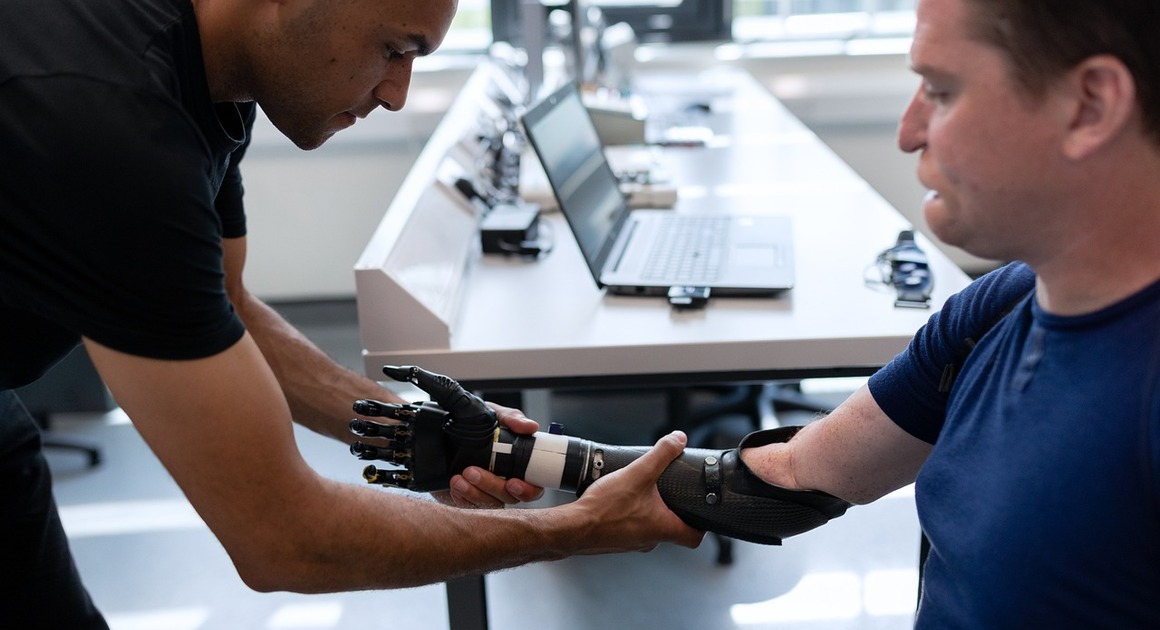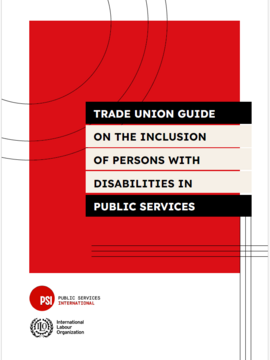- Tags (2)
Building Inclusive Public Services: PSI & ILO release Guide on Disability Inclusion

This first-of-a-kind guide showcases successful case studies such as UNISON's (UK) Guide on Disability Leave or CCOO's (Spain) Guide to Occupational Health and Disability, while offering clear pathways for improvement, emphasising that disability inclusion is not merely an ethical obligation but a crucial component of social justice.

Verónica Montúfar
PSI is proud to announce the launch of an important new resource developed in partnership with the International Labour Organization (ILO): a comprehensive Trade Union Guide on the Inclusion of Persons with Disabilities in Public Services.
This first-of-a-kind guide represents a significant milestone in our ongoing commitment to creating truly inclusive public services. It provides practical tools and strategies for public services unions to better integrate workers with disabilities into their organisations and advocate effectively for their rights through social dialogue and collective bargaining.
The guide highlights successful case studies where public services unions have made meaningful progress in disability inclusion, while also offering clear pathways for improvement where gaps remain. As organisations representing public services workers, unions hold a strategic position to champion decent work for persons with disabilities—not only benefiting these workers directly but also contributing to more accessible and inclusive public services for all.
Trade Union Guide on the Inclusion of Persons with Disabilities in Public Services
PSI General Secretary Daniel Bertossa emphasises the guide's significance: "This guide is a bold and necessary step towards building truly inclusive unions in public services—unions that recognise, respect, and fight for the rights and dignity of workers with disabilities. It sends a powerful message: inclusion is not a choice—it is a fundamental right."
Public services unions are not just key actors — they must be at the forefront of making disability inclusion a reality.
Andrea Barcelos, from PSI affiliate, Sindicato dos Enfermeiros do estado de São Paulo in Brazil, says, “As members of the PSI Persons with Disabilities Consultation Group, we are immensely proud to have helped shape this guide — bringing our personal experience and unwavering determination as trade union leaders to transform the world of work. Public services unions are not just key actors — they must be at the forefront of making disability inclusion a reality.”
The guide reinforces that disability inclusion in the workplace is not merely an ethical obligation but a crucial component of social justice and decent work—principles that both PSI and the ILO have championed for decades. By providing practical resources for public service unions, we aim to accelerate progress toward workplaces that are open, safe, stable, inclusive and accessible for all workers.
PSI welcomes the strategic partnership with the ILO, as together we are strengthening the force of cooperation to advance disability inclusion and protect workers' rights across every part of public services worldwide.
“PSI and its affiliated unions have demonstrated the political will and commitment to promoting the inclusive employment of persons with disabilities, thus contributing to more inclusive public services." Esteban Tromel, ILO-GEDI
“Promoting decent work for persons with disabilities is an essential part of the inclusive agenda for social justice. Workers with disabilities have the same right to equality of treatment and opportunity as any other worker. This Guide supports trade union action in the public services to promote this inclusion.” Victor Hugo Ricco, ILO-ACTRAV
PSI encourages all affiliated unions to utilise this valuable resource in their organising, bargaining, and advocacy work. Together, we can create public services that truly serve everyone in our communities—both as service providers and as model employers.
The full guide is available for download on the PSI website in English, French and Spanish.
Inclusion is not a choice—it is a fundamental right
